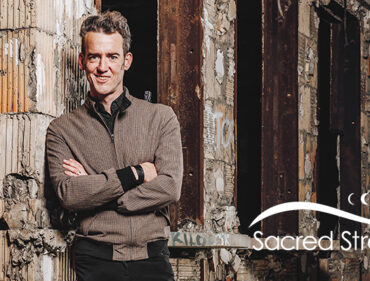Blog: The Life and Work of Albert Schweitzer
By Isa Gucciardi, Ph.D.
“Whatever you have received more than others – in health, in talents, in ability, in success, in a pleasant childhood, in harmonious conditions of home life – all this you must not take to yourself as a matter of course. In gratitude for your good fortune, you must render in return some sacrifice of your own life for other life.”
– Albert Schweitzer
Albert Schweitzer became one of my first heroes when I read his biography at 8 years old. It was the first time I understood that there were people in the world who did not have access to the help they needed when they were sick. This was very distressing to me, and I wanted to go to Africa to help.
Albert Schweitzer was born in 1875 in Kaysersberg, Germany. He was sickly as a child, and lost a sister to illness when he was quite young. He was also bullied by the other children in his village because his father was the town pastor. His father tutored him in theology and music, which he went on to study at university. When he was blocked from practicing as a minister, he decided to become a medical doctor. While at school he decided that he wanted to go to Africa to practice medicine, and he raised money for the trip by giving organ concerts.
When I was 13, I read a more complex biography called Out of My Life and Thought, and was inspired by his persistence in accomplishing his goals even when he was blocked by religious, government, and political establishments. When I was younger, I did not realize he had to face down prejudice of every sort in order to build and staff his hospital in Africa. Despite racial prejudice, religious intolerance, and government bureaucratic efforts to stop him, he persevered and was able to realize his dreams.
In the spring of 1913, Albert Schweitzer and his wife, who was a trained nurse, left for Lambaréné in the Gabon province of French Equatorial Africa. There they set up their hospital in a chicken hut on the banks of the Ogooué (Ogowe) River. Although funds and equipment were scarce, they began to treat thousands of Africans, who traveled far to visit the little hospital. By the autumn of 1913, they had expanded the hospital and even had an operating room.
In 1914, Schweitzer and his wife were put under the supervision of the French military because they were Germans in French territory. In 1917, Albert became ill from exhaustion and anemia. He and his wife were sent to France, where they were imprisoned and later released. They remained in Europe for the next six years, raising funds for the hospital in Africa by giving lectures and organ concerts. Schweitzer remained an avid theologian and musician, and many of his talks centered on his theological ideas which focused on service, purpose, and tolerance.
In 1940, while living at Lambaréné, his work was again interrupted by the politics of World War II. Because of the war, European supply lines were cut off. He decided to establish the Albert Schweitzer Fellowship to unite his US supporters. In 1949, Schweitzer traveled to the United States, giving lectures on the benefits of serving the underprivileged.
At the time of his death in 1965, the hospital had grown to house over 600 beds and employ numerous nurses and doctors. Through his work, Schweitzer sought to level the playing field by bringing resources to places where there were none. One of his most famous quotes is, “Sometimes our light goes out, but is blown again into instant flame by an encounter with another human being.”
He had become an inspiration for so many, and there were several centers that were established to honor his work. I found my way to one of them located in New England in my early twenties. I was studying herbal medicine and giving medicinal herb walks, when the head of the center asked me if I would lead herb walks on the center’s grounds. I was thrilled, not only because the center had so many different plant habitats, but because it gave me access to the private library at the center which contained many of Schweitzer’s original notebooks.
I spent hours pouring over the papers there. It was not Africa, but I felt close to Schweitzer and to his vision. I had been seeking to understand him and to support his vision for much of my young life, and I felt in some small way I could do that by supporting his center and helping people learn about healing. I had always thought I would find him on the banks of the Ogowe. Instead, I found myself walking with him along the banks of that small brook filled with watercress, yarrow, and self-heal that cut through the center’s fields, sharing stories about him with the people who came to learn about herbal medicine and healing.
Author’s Note: I find inspiration in the stories of people who have seen a need and tried to meet it. Be they healers, activists, politicians, leaders, or every day people who do the right thing in a difficult situation. These are people who stand up to oppression, or try to bring justice to places where none exists. For that reason, I have decided to create this series on Inspiring People.
ENJOYING THE STREAM OF CONSCIOUSNESS BLOG? SIGN UP FOR FREE UPDATES!



